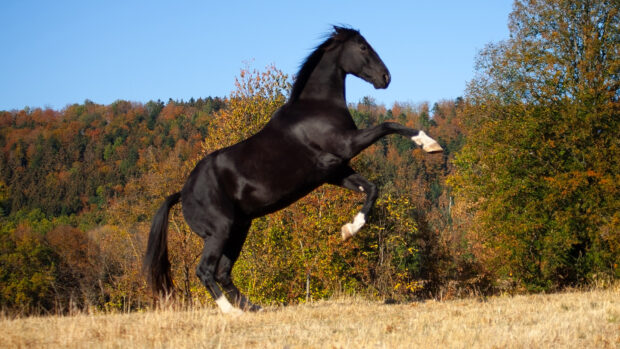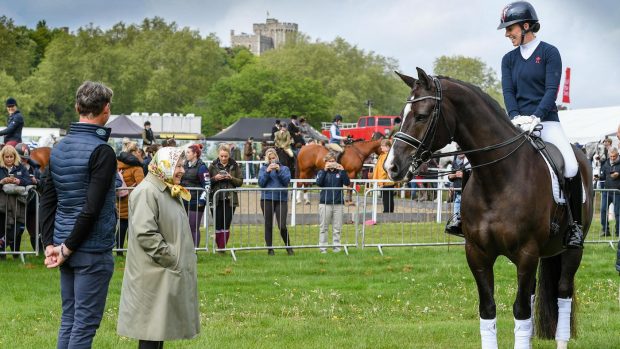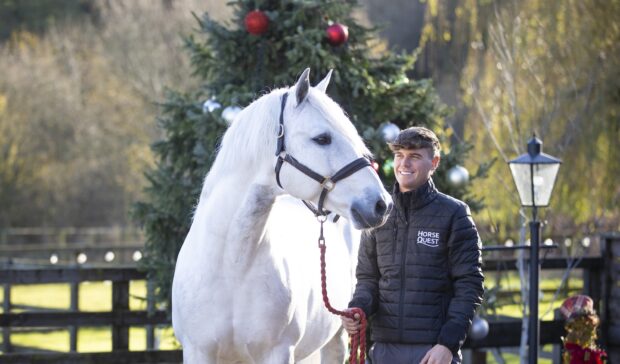In the first few weeks of the First World War, the British Army requisitioned more than 120,000 horses to serve across the Channel.
In four years of conflict, some eight million horses, donkeys and mules died, and the fate of many remains unknown.
One of those was Black Nannie, the partner of Scottish ploughman William Smart, whose story has been discovered thanks to a poem the heartbroken farmer wrote after she had been taken away.
Richard Burdett, Mr Smart’s great-grandson, found the poem Black Nannie’s Awa’ in a pile of his mother’s papers after her death this year. He passed it on to Brooke, and it has become the centrepiece of the equine welfare charity’s 2024 Every Horse Remembered campaign, which “takes time to honour and reflect on the heroic struggle of working horses, donkeys and mules of the past and present, and help build better lives for future generations”.
A spokesperson for the charity said: “Black Nannie’s Awa’ tells the story of William’s despair that his horse Black Nannie will be ‘reduced to skin and bone’ from the hardships of war and heavy labour.
“Brooke, a charity dedicated to improving the lives of working horses, donkeys and mules all over the world, was formed by Dorothy Brooke after her husband was posted to Cairo to command the British Cavalry Brigade in 1930. Dorothy saw the fate of former war horses like Black Nannie who had never been returned home and were suffering in poor conditions in Egypt.
“Within three years, Dorothy purchased 5,000 former war horses and in 1934, founded the Old War Horse Memorial Hospital in Cairo, with the promise of free veterinary care for all the city’s working horses and donkeys. Today, Brooke is the world’s largest working equine welfare organisation, working in Africa, Asia and Central America.”
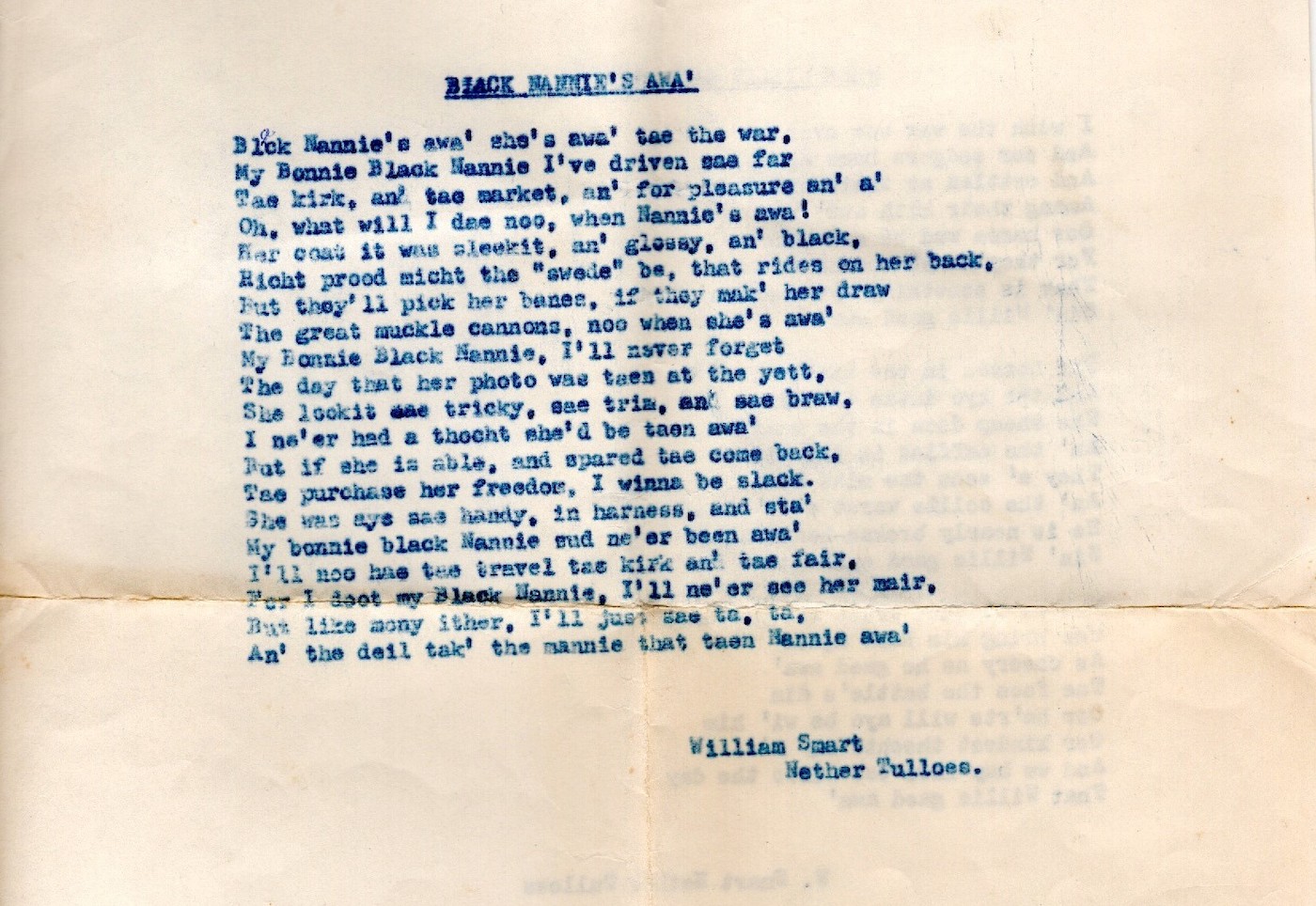
Mr Burdett, director of H&C TV Ltd, said he found the poem typed on an A4 sheet of paper, in a pile of bills and other records. He said is not horsey but recognised the poem’s significance owing to his job, and contacted Brooke. With the help of Aly Barr, deputy director at the Scottish Poetry Library, Brooke created a short film, of archive footage and still images, set to music and the narration of Black Nannie’s Awa’ by poet James Robertson,
“Black Nannie’s Awa’ has resurfaced in a wonderful way that none of us could ever have imagined,” Mr Burdett said.
“And as for Black Nannie herself, well, we’ve no way of knowing if she made it home and William got his chance ‘tae purchase her freedom’. But it’s nice to think that perhaps, just maybe, Black Nannie and Dorothy Brooke’s paths crossed in Egypt all those years ago.
“And, even if they didn’t, they have now.”
- To stay up to date with all the breaking news throughout major shows such as London International and more, subscribe to the Horse & Hound website
You may also be interested in:
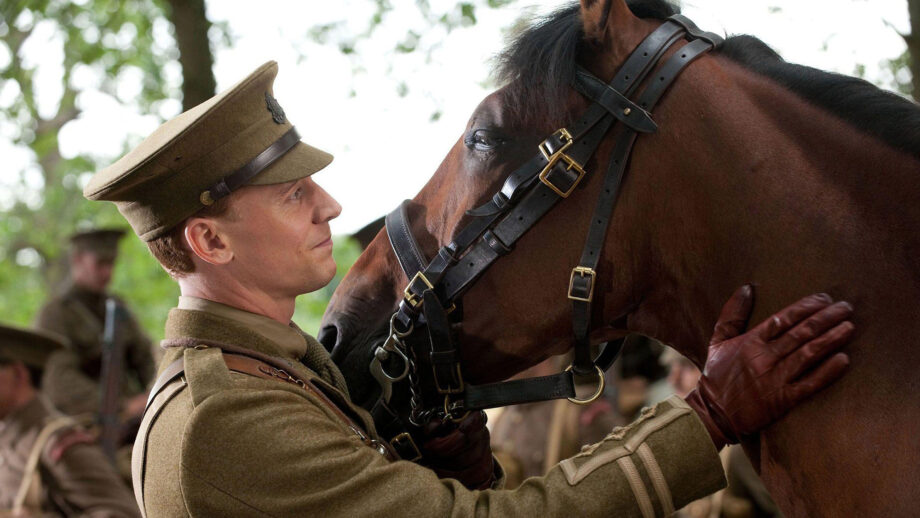
War horses and their evolving role throughout British history

Remembering the war horses, 100 years on
The video, called “100 years on – Remembering the horses of World War I” will feature historic equine images from

The Lost War Horses of Cairo: a moving tribute to Dorothy Brooke’s passion
Grant Hayter-Menzies chronicles the life of Dorothy Brooke, founder of international equine welfare charity Brooke, and her efforts to relieve

Subscribe to Horse & Hound magazine today – and enjoy unlimited website access all year round


